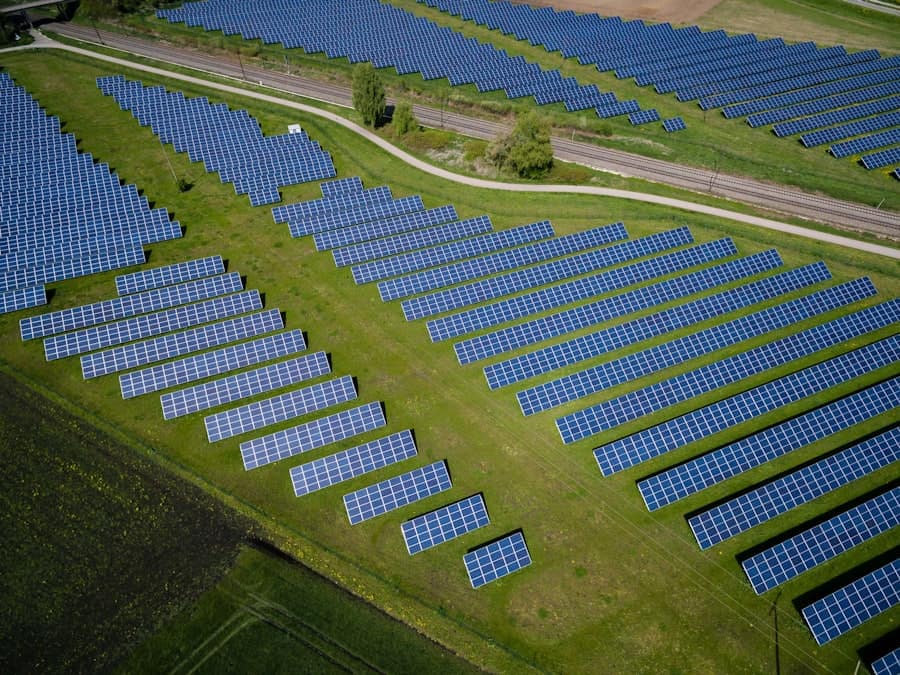In recent years, the renewable energy sector has witnessed a remarkable surge in the establishment of startups dedicated to harnessing sustainable energy sources. This rise can be attributed to a confluence of factors, including increasing awareness of climate change, technological advancements, and a growing demand for clean energy solutions. Entrepreneurs are increasingly recognizing the potential for innovation in this space, leading to a proliferation of companies focused on solar, wind, bioenergy, and other renewable technologies.
The global push towards decarbonization has created fertile ground for these startups, as governments and consumers alike seek alternatives to fossil fuels. The emergence of renewable energy startups is not merely a trend; it represents a fundamental shift in how energy is produced and consumed. Traditional energy companies are now facing competition from agile startups that leverage cutting-edge technologies to deliver cleaner and more efficient energy solutions.
For instance, companies like Tesla have revolutionized the electric vehicle market while simultaneously pushing advancements in battery storage technology. This has not only made renewable energy more accessible but has also inspired a new generation of entrepreneurs to explore innovative ways to integrate renewable sources into everyday life.
Key Takeaways
- Renewable energy startups are on the rise, driven by the increasing demand for sustainable energy solutions.
- Innovative technologies such as solar panels, wind turbines, and energy storage systems are revolutionizing the renewable energy sector.
- Funding and investment in green tech startups are growing, creating opportunities for new players in the industry.
- Renewable energy startups are making a positive impact on the environment by reducing carbon emissions and promoting sustainability.
- While renewable energy startups face challenges, such as high initial costs and regulatory barriers, they also have opportunities for growth through collaboration and partnerships in the green tech industry.
Innovative Technologies in Renewable Energy
The landscape of renewable energy is continuously evolving, driven by groundbreaking technologies that enhance efficiency and reduce costs. One of the most significant innovations is the development of advanced photovoltaic (PV) cells, which convert sunlight into electricity. Traditional silicon-based solar panels have been improved upon with the introduction of perovskite solar cells, which promise higher efficiency rates and lower production costs.
These materials can be manufactured using simpler processes and can be applied to a variety of surfaces, making solar energy more versatile and accessible. Wind energy technology has also seen substantial advancements. The advent of larger and more efficient wind turbines has increased the capacity for energy generation from wind farms.
Innovations such as floating wind turbines allow for installations in deeper waters where wind speeds are typically higher, thus maximizing energy output. Additionally, the integration of artificial intelligence (AI) and machine learning into energy management systems enables real-time optimization of energy production and consumption, further enhancing the viability of renewable sources.
Funding and Investment in Green Tech Startups

The financial landscape for renewable energy startups has transformed dramatically over the past decade. Venture capitalists and institutional investors are increasingly recognizing the potential for high returns in green technology. According to a report by Bloomberg New Energy Finance, global investment in renewable energy reached over $500 billion in 2020 alone, with a significant portion directed towards startups innovating in this space.
This influx of capital is crucial for fostering innovation and scaling operations, allowing startups to develop their technologies and bring them to market more rapidly. Moreover, government incentives and grants have played a pivotal role in supporting the growth of green tech startups. Programs aimed at reducing carbon emissions and promoting sustainable practices have created an environment conducive to investment.
For instance, the U.S. government has implemented tax credits for solar and wind energy projects, which not only incentivizes large-scale adoption but also attracts private investment into startups that are developing complementary technologies. This symbiotic relationship between public policy and private investment is essential for driving the renewable energy sector forward.
Impact of Renewable Energy Startups on the Environment
The environmental impact of renewable energy startups is profound and multifaceted. By providing alternatives to fossil fuels, these companies contribute significantly to reducing greenhouse gas emissions, which are a primary driver of climate change. For example, the proliferation of electric vehicles powered by renewable energy sources can drastically lower carbon footprints compared to traditional gasoline-powered cars.
Startups focused on battery technology are also crucial in this transition, as they enable efficient storage solutions that allow for the use of renewable energy even when production is low. Additionally, many renewable energy startups are committed to sustainable practices beyond just their product offerings. Companies like Beyond Meat and Impossible Foods are innovating in the food sector by creating plant-based alternatives to meat, which require significantly less land and water than traditional livestock farming.
This not only reduces emissions associated with animal agriculture but also promotes biodiversity by minimizing habitat destruction. The ripple effect of these innovations extends beyond energy production; they contribute to a holistic approach to environmental sustainability.
Challenges and Opportunities for Renewable Energy Startups
Despite the promising landscape for renewable energy startups, they face a myriad of challenges that can hinder their growth and scalability. One significant hurdle is the regulatory environment, which can vary widely from one region to another. Navigating complex regulations can be daunting for new companies, particularly those looking to enter markets with established players.
Additionally, securing funding can be challenging, especially for startups that are still in the early stages of development or those that require substantial capital investment for research and development. However, these challenges also present unique opportunities for innovation and collaboration. Startups that can successfully navigate regulatory frameworks may find themselves at a competitive advantage as they establish themselves as leaders in their respective niches.
Furthermore, partnerships with established companies can provide access to resources and expertise that can accelerate growth. For instance, collaborations between tech firms and renewable energy startups can lead to the development of smart grid technologies that enhance energy distribution efficiency.
Collaboration and Partnerships in the Green Tech Industry

Collaboration is becoming increasingly vital in the green tech industry as startups seek to leverage each other’s strengths to drive innovation forward. Strategic partnerships between startups and larger corporations can facilitate knowledge sharing and resource pooling, enabling both parties to benefit from each other’s expertise. For example, a startup specializing in solar panel technology might partner with an established utility company to pilot new solar installations, gaining valuable insights while providing the utility with cutting-edge solutions.
Moreover, collaborations extend beyond corporate partnerships; they also encompass alliances with research institutions and universities. These partnerships can lead to groundbreaking research that propels technological advancements in renewable energy. For instance, joint ventures between universities and startups have resulted in significant breakthroughs in battery technology and energy storage solutions.
By fostering an ecosystem of collaboration, the green tech industry can accelerate its growth trajectory while addressing pressing environmental challenges.
Policy and Regulation for Renewable Energy Startups
The role of policy and regulation cannot be overstated when it comes to the success of renewable energy startups.
Such measures create a favorable environment for startups by lowering barriers to entry and enhancing market opportunities. However, navigating this regulatory landscape can be complex for new entrants. Startups must stay informed about changing regulations that could impact their operations or funding opportunities.
Engaging with policymakers and industry associations can help startups advocate for favorable regulations while ensuring they remain compliant with existing laws. As governments continue to prioritize sustainability in their agendas, proactive engagement with regulatory bodies will be essential for startups aiming to thrive in this dynamic environment.
Future Trends in Renewable Energy Startups and Green Tech Innovation
Looking ahead, several trends are poised to shape the future of renewable energy startups and green tech innovation. One notable trend is the increasing integration of digital technologies into renewable energy systems. The Internet of Things (IoT) is enabling smarter energy management solutions that optimize consumption patterns based on real-time data analysis.
Startups that harness IoT capabilities will likely lead the charge in creating more efficient energy systems that respond dynamically to user needs. Another emerging trend is the focus on circular economy principles within the renewable energy sector. Startups are beginning to explore ways to minimize waste throughout their supply chains by designing products that are easier to recycle or repurpose at the end of their life cycles.
This shift towards sustainability not only aligns with consumer preferences but also addresses critical environmental concerns related to resource depletion. As we move further into the 21st century, it is clear that renewable energy startups will play an integral role in shaping a sustainable future. Their innovative approaches, coupled with supportive policies and collaborative efforts across industries, will drive significant advancements in clean technology while addressing some of the most pressing environmental challenges facing our planet today.
A related article to “How Renewable Energy Startups Are Driving Green Tech Innovation” is “RankAtom Review: The Game-Changing Keyword Research Tool” which discusses the importance of utilizing effective keyword research tools in digital marketing strategies. This article highlights how innovative tools like RankAtom can revolutionize the way businesses approach SEO and content optimization. To learn more about this game-changing tool, check out the full review here.
FAQs
What are renewable energy startups?
Renewable energy startups are newly established companies that focus on developing and implementing innovative technologies and solutions for renewable energy sources such as solar, wind, hydro, and geothermal power.
How are renewable energy startups driving green tech innovation?
Renewable energy startups are driving green tech innovation by developing and implementing new technologies and solutions that harness renewable energy sources, reduce carbon emissions, and promote sustainability. These startups are often at the forefront of developing cutting-edge technologies and business models that are disrupting traditional energy markets.
What are some examples of renewable energy startups?
Some examples of renewable energy startups include companies that specialize in solar panel technology, wind turbine design, energy storage solutions, smart grid technology, and bioenergy production. These startups are often focused on creating more efficient and cost-effective ways to harness renewable energy sources.
How do renewable energy startups contribute to the fight against climate change?
Renewable energy startups contribute to the fight against climate change by developing and implementing technologies that reduce reliance on fossil fuels, lower carbon emissions, and promote sustainable energy production. By driving innovation in the renewable energy sector, these startups play a crucial role in transitioning towards a low-carbon economy.
What are the challenges faced by renewable energy startups?
Renewable energy startups face challenges such as securing funding for research and development, navigating complex regulatory environments, competing with established energy companies, and scaling up their technologies to achieve widespread adoption. Additionally, the intermittent nature of some renewable energy sources presents technical challenges that startups must address.

